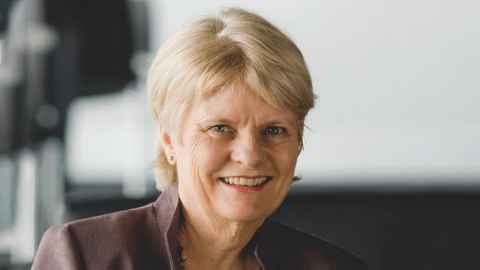Social security purposes and principles cold comfort for too many
28 July 2022
A strong vision to improve access to comprehensive social security support in Aotearoa New Zealand is still lacking says Susan St John.

Opinion: Have we gone backwards in our thinking on providing a social security blanket?
In 2019, the Welfare Expert Advisory Group, Whakamana Tāngata: Restoring Dignity to Social Security in New Zealand, advocated strongly for a new "purposes and principles" section of the Social Security Act.
Let's face it, the current ones have taken us a long way in the wrong direction.
Labour itself is responsible for the 2007 amendment to the "purposes and principles" section of the current Act that made claims, for example, that "work in paid employment offers the best opportunity for people to achieve social and economic wellbeing".
Social security was available to assist only after people had looked to their own resources. Its purpose was to - grudgingly - relieve hardship, not to provide any kind of belonging and participation outcomes and security.
Labour's changes to the Act in 2007 paved the way for National (2008-2017) to further undermine the welfare state by emphasising the primacy of paid work and downplaying community responsibility and unpaid caring activity.
The 2007 amendment "to enable in certain circumstances the provision of financial support to people to help alleviate hardship" tightened welfare assistance with severe sanctions for non-compliance.
An ugly culture developed in Work and Income New Zealand (WINZ) as poverty was used to ensure desired behaviour. Penalties were imposed for infringements of the convoluted rules alongside an appeals process stacked in MSD's favour and without oversight by an outside body.
The 2007 changes also required that, before asking the state for any help, people should, "where appropriate, use the resources available to them before seeking financial support under this Act".
The culture took hold; if the beneficiary had borrowed money because they could not survive on a benefit, such loans could be treated as income, thus reducing the amount of that same benefit.
Sole parents faced losing their financial independence if there was a whiff of a potential partner, with MSD given powers to determine a relationship; its nature, starting point, amount of overpayments and whether to prosecute.
Surely the purpose of the Social Security Act is income adequacy: prevention of poverty for all New Zealanders when unable to work, in old age, caring for others, sickness, disability, and unemployment.
At last, in February this year, MSD undertook to rewrite the "purpose and principles" section.
Its suggestions were highly controversial and retained the flavour of the offending 2007 amendment by including sentences such as "where appropriate [beneficiaries] should use the resources available to them before seeking financial support under this Act".
The primacy of paid work was slightly moderated, but there was no visionary statement about the purpose of social security as being to alleviate actual poverty but to prevent it and to enable participation and belonging in society.
Rather, the best the 2022 proposed change offered was "social security contributes to the wellbeing of the community by providing support to reduce poverty and hardship".
The first survey question asked in the superficial consultation on these proposed changes was: "do you agree that wellbeing should be the overarching purpose of the Social Security Act?"
Surely the purpose of the Social Security Act is income adequacy: prevention of poverty for all New Zealanders when unable to work, in old age, caring for others, sickness, disability, and unemployment.
As the 1972 Royal Commission on Social Security in New Zealand stated: "The aims of the system should be to ensure that everyone is able to enjoy a standard of living much like that of the rest of the community, and thus is able to feel a sense of participation in and belonging to the community."
Wellbeing is a very different and nebulous, hard-to-measure concept that depends on a myriad of factors outside of the income support system.
Following Michael Joseph Savage's Act of 1938, the core benefits of the 1970s and 1980s were not asset-tested and people could often recover from adversity quickly. Means tests were only for supplementary assistance, and used rarely. Social welfare was social insurance: income protection for life's hazards that could never be provided for everyone by private insurance or private charity.
The 1988 Royal Commission on Social Policy reinforced that the purpose of the Act was not just the "relief of need" but "to provide access to sufficient share of income and resources to allow all to participate in society, have a genuine opportunity to achieve potential to live fulfilling lives".It also stated a clear principle to "ensure the wellbeing and healthy development of all children".
Months on, there has been no feedback since the February consultation nor indication of when, or if, a new version of the "purposes and principles" section is to be adopted, nor any wide public engagement on an issue that affects everyone.
Will the Ministry of Social Development's version simply go to Cabinet and be written into the Act without further scrutiny?
Michael Joseph Savage would be watching nervously.
This article reflects the opinion of the author and not necessarily the views of the University of Auckland.
First published in the New Zealand Herald on 25 July 2022.
Media contact
Sophie Boladeras | Media adviser
M: 022 4600 388
E: sophie.boladeras@auckland.ac.nz